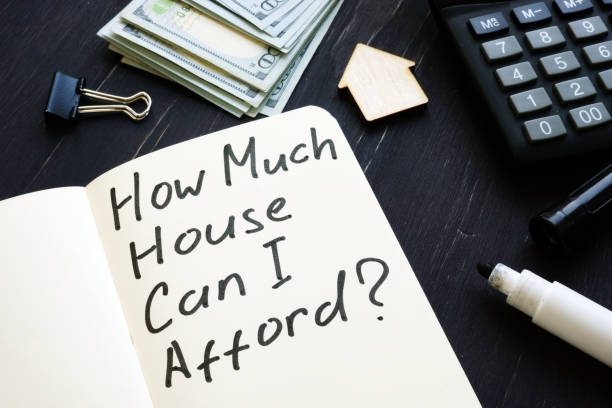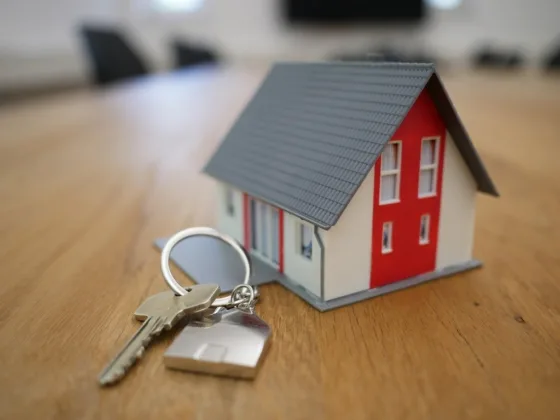Owning a house is a big deal, like a dream for many, but knowing how much of it can you really afford, both in terms of space and budget-wise, is pretty important too!
In fact, out of all the factors that you should consider before buying a property, vis-a-vis the neighborhood, or the transportation, the cost of it has to be the most important.
The reason of course is the fact that buying a house these days is so expensive in the first place that most of us end up spending our life savings (as a down payment) on owning one.
And then some, in the form of monthly payments against the mortgage that we took for the rest of our lives, or for years or decades to come to be able to call it your home.
And this begs the question of how to have a better understanding and a clear estimate of your buying capacity, or mortgage affordability, and how it impacts your monthly budgets in the future well in advance!
Well, without further ado, let’s take a look at 5 of the smartest ways that you can use to calculate how much house you can afford to make a well-informed decision:
1. Know Your Earnings and Expenses
The best way to project how much mortgage you can afford is by understanding your monthly expenses and income.
Banks usually figure that out by taking into account these two factors- your GDS (Gross Debt Service) which is your housing-expense-to-income ratio, and TDS (Total Debt Service)- your debt-to-income ratio.
GDS is the total housing cost including the mortgage payment, taxes, heating expenses, and so on that you’ll be liable to pay every month without fail.
TDS on the other hand would include your GDS plus any other monthly debts such as a student or a car loan, or credit card payment that you might have to pay monthly.
According to the Canada Mortgage and Housing Corporation (CMHC), the ratio limits for GDS and TDS are set as 39% and 44% respectively.
What this means in simple terms is that your total monthly expenses including overall housing costs plus other debts should not exceed 44% of your total monthly gross income in any way.
2. Get Familiar with The Rules and Policies
Along with a fixed GDS and TDS, you must also be able to pay at least 5% of the purchasing price of the house as a down payment as per the rules.
And this is where your savings come into the picture which most banks would take a good look at before approving your loan.
The point of checking your savings is not only to check the cash on hand but to check your savings and billing habits. Therefore, you must maintain a consistent record for easy approvals.
Another mandate that every mortgage applicant has to qualify for is the Mortgage Stress Test which tells the lenders whether or not you’d be able to afford the mortgage should the interest rates increase.
The current Stress Test rate is set at 5.25% but this can differ depending on whether your mortgage is insured or uninsured. The more the stress rate increases, the less amount that you can borrow.
Here’s a stress test calculator that you can use to get a fair estimate and more info on how the mortgage stress test rate can affect you.
Read Also:
3. Use A Mortgage Affordability Calculator
Just like a stress calculator, there are dozens of online mortgage affordability calculators that you can use to get a clear estimate of how much you should expect to pay.
Remember, the more detailed the calculator, the more accurate the results. Still, you should use multiple calculators to better analyze what you’ll have to pay.
If you are unsatisfied with the results, you can always approach a professional brokerage for a closer look at your financial situation.
4. Don’t Miss Out on Associated Costs
Owning a house comes with several other costs beyond the down payment and mortgage amount.
This may include mortgage and home insurance, property taxes, closing costs, homeowner’s association (H0A) and condo fees, maintenance charges, utility bills, and so on.
Therefore, considering all the associated costs and additional expenses is a great way of finding out how much you’ll have to keep paying even after the mortgage amount is fully paid off.
5. Check Your Credit Worthiness
Apart from your income, savings, debt, and expenses, another major factor that every lender or bank checks thoroughly before approving your loan is your credit score which should be ideally 600 or more.
A higher credit score would get you the loan at a much cheaper interest rate than a low credit score.
In case, there are any discrepancies, make sure to have them removed prior to applying for the mortgage so as to avoid missing out on your dream home.
Besides, buying a home is most probably going to be the biggest debt of your life.
So you might as well do the maths and find out if you’re comfortable paying the mortgage for years and decades to come before undertaking this enormous financial obligation.
FAQs (Frequently Asked Questions)
– Start by figuring out 25% of your take-home pay (after tax).
– Never spend more than 25% of your monthly income on mortgage payments.
– Use a mortgage calculator to determine your home budget.
– Factor in closing costs and homeownership expenses.
– Consider your household income, monthly debts (such as car loans and student loan payments), and the amount available for a down payment.
– Estimate your total housing expenses, including mortgage payments, insurance, property taxes, and homeowner’s association fees. Divide this by your gross monthly income.
Yes! You can use online calculators from NerdWallet, Zillow, and Bankrate to estimate how much house you can afford based on your income, debts, and down payment.












